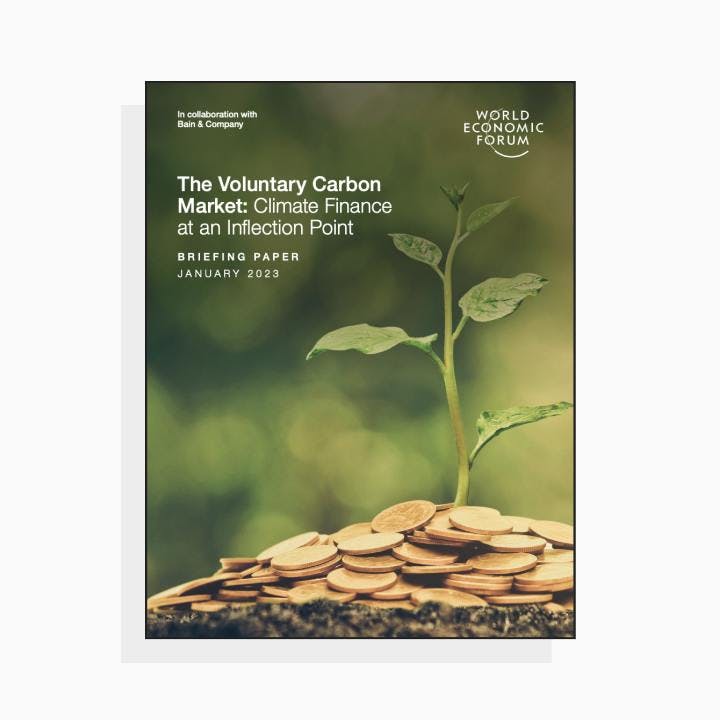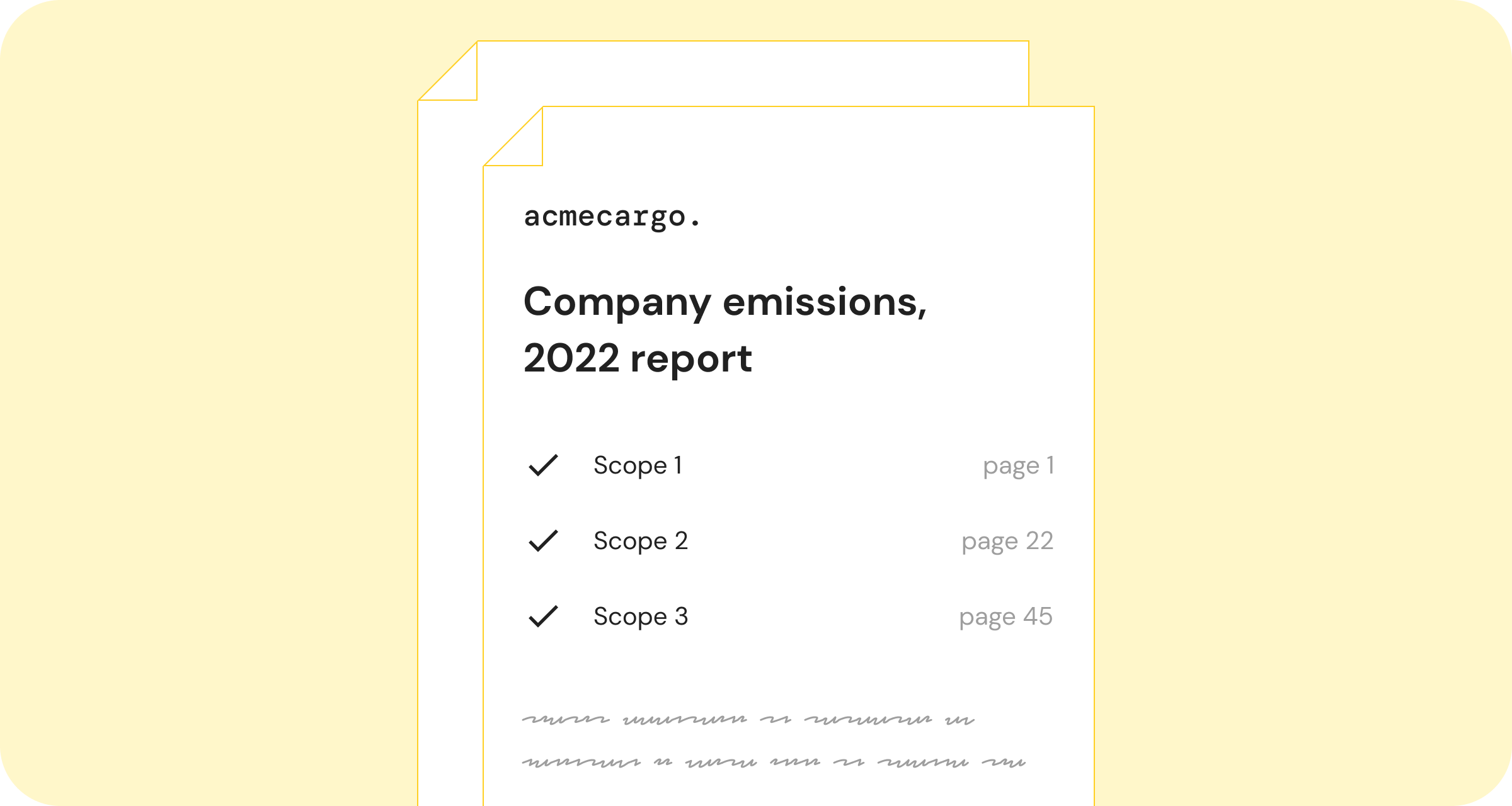

The Voluntary Carbon Market (VCM) is at a major turning point.
That’s the argument of the newly released report: ‘The Voluntary Carbon Market: Climate Finance at an Inflection Point’ by the World Economic Forum and Bain & Company.
The authors discuss two areas of importance within this topic:
- The challenges currently facing the Voluntary Carbon Market – what is stopping the market from achieving the scale that we need to see to meet climate targets?
- A set of recommendations for corporate leaders to help address those challenges and support the development of the VCM as part of their business sustainability work – especially important given the fact that so many businesses are now aiming for net zero targets.

The challenges facing the Voluntary Carbon Market in 2023
The World Economic Forum and Bain & Company conclude that the VCM faces 3 major challenges currently:
- Lack of project quality and credibility. There is a need for carbon projects to transform to be centred on integrity and impact, to assure potential corporate carbon buyers that real impact is happening through the purchase of carbon credits – currently, high-quality carbon projects are the minority within the carbon market. The report specifically mentions the importance of additionality in carbon projects.
Subscribe for the latest insights into driving climate positivity
- Lack of business commitment to fund climate action through the carbon market. The questionable credibility of carbon projects means many companies are holding back from buying carbon credits – coupled with a general lack of urgency for business climate action. This is true even within those companies that have made public net zero commitments, which requires the purchase of carbon credits to compensate for unavoidable emissions.
- Lack of transparency in how the market works. There is a need for reform within the VCM to improve trust and transparency, specifically: approved guidelines for companies, standardised reporting guidelines for projects, regulation in the VCM. Additionally, the report also highlights the lack of transparency about how much of the price of a carbon credit actually goes to the project – with many suppliers taking a substantial fee (something we’re changing through our approach at Lune).
Want to support the development of the VCM? Recommended actions for corporate leaders
To help combat these key challenges, the report highlights 5 actions for corporate leaders – particularly those that already have net zero targets and commitments, as they are inherently reliant on the Voluntary Carbon Market to meet those targets.
The suggested 5 actions are:
- Set a decarbonisation pathway aligned with scientific recommendations, and communicate clearly how carbon credits are part of that pathway.
- Acknowledge the urgency of high-integrity carbon projects, particularly those protecting nature’s carbon sinks and supporting communities – and act on this by supporting those high-integrity projects now.
- As leading standards and practices for purchasing carbon credits with credibility arise and develop, adopt them to help them scale. For instance, the ICVCM and the VCMI. The report also closes by recommending the Oxford Principles for Offsetting as a best practice strategy for businesses to maximise impact.
- Disclose and communicate your own carbon credit strategy and purchases to improve market transparency. This includes the project types, cost of carbon credits, how the transaction works.
- Collaborate with other businesses to amplify corporate commitments to buy quality carbon credits, signalling demand for the market to help its growth.
Not sure where to start with ensuring your carbon offsetting is credible? We’d suggest the following as great starting points:
- Making sure you can tell the difference between low-quality and high-quality carbon projects
- Learning about the Oxford Offsetting Principles for a best practice approach
Readers also liked
Readers also liked

Subscribe for emissions intelligence insights
Get the latest updates in the world of carbon tracking, accounting, reporting, and offsetting direct to your inbox.


